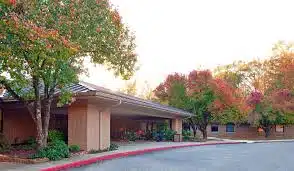
Addiction Recovery Support & Treatment Options in Huntsville
Huntsville, Alabama, is recognized for its technological innovations, historic landmarks, and growing cultural scene. However, like many communities across the nation, Huntsville faces significant challenges related to alcohol and drug addiction. Substance abuse impacts individuals on a deeply personal level and places a considerable strain on families, workplaces, and the broader community.
Fortunately, there are numerous treatment resources available to those struggling with addiction. This article explores the current state of addiction in huntsville, examines its effects on individuals and the community, and outlines the various treatment options and resources available to those in need.
The Scope of Addiction in Huntsville, Alabama
How Common is Addiction in Alabama?
Addiction is a pressing issue across the state of Alabama, and Huntsville is no exception. Opioid addiction, including substances like fentanyl, heroin, and prescription painkillers, has become a major public health concern.
According to the Alabama Department of Public Health, opioid-related deaths have been rising steadily, contributing to the state’s broader struggles with substance abuse. Additionally, methamphetamine and alcohol abuse are significant concerns in the Huntsville area.
Why Huntsville Faces Unique Challenges
Huntsville’s rapid growth and urbanization bring both opportunities and challenges. As a city known for its aerospace, technology, and military presence, Huntsville attracts a diverse population, which sometimes faces complex substance abuse issues.
Factors like limited healthcare access in rural areas and a growing urban drug trade exacerbate addiction problems. These challenges are compounded by social stigma, lack of mental health support, and insufficient addiction recovery resources.
Substance Abuse Among Specific Demographics
- Teens and Young Adults: Peer pressure, accessibility of substances, and societal stressors contribute to a high rate of addiction among youth. Educational outreach programs and early intervention are critical to addressing this growing concern.
- Veterans: Huntsville’s significant veteran population often faces dual challenges of post-traumatic stress disorder (PTSD) and addiction, especially to opioids or alcohol. Specialized treatment programs are necessary to address these dual issues effectively.
- Professionals: High-stress jobs and burnout can lead to substance misuse among professionals in Huntsville, particularly alcohol and prescription medications. Effective treatment often involves work-life balance strategies and stress management techniques.
Call Now – Your Journey to Recovery Begins Today!

Take the first step towards a healthier life! Call now to connect with our compassionate team and start your recovery journey today. Your path to healing awaits!
Our recovery specialists are available 24/7 to provide support, and all calls are confidential and free. Reach out anytime – we’re here to help!
How Addiction Affects Individuals and Communities
Health Impacts of Addiction
Addiction not only impacts an individual’s physical and mental health, but it also leads to long-term consequences. Chronic substance abuse can cause liver damage, heart disease, respiratory issues, and neurological disorders. On the mental health front, addiction is often linked with depression, anxiety, paranoia, and other psychological disorders. Treatment programs in Huntsville seek to address both the physical and emotional aspects of recovery.
Social Consequences of Addiction
The social repercussions of addiction are far-reaching. Families can experience strain and dysfunction, marriages may break down, and individuals often face legal issues related to substance abuse. Financial instability is another common challenge, with many individuals losing their jobs or facing legal costs as a result of their addiction. Addiction can also perpetuate cycles of homelessness, particularly when individuals lose their support systems.
The Economic Burden of Addiction
The economic burden of addiction is substantial. The cost of healthcare for individuals suffering from addiction, the impact on the workforce, and the resources needed to manage addiction through law enforcement and social services all contribute to Huntsville’s financial strain. Investment in addiction treatment not only helps individuals but also promotes broader community health and economic stability.
Recognizing the Early Signs of Addiction
Behavioral and Physical Symptoms
- Behavioral Signs: Increased secrecy, withdrawal from social activities, sudden changes in lifestyle or hobbies, and neglecting responsibilities are some common behavioral signs of addiction.
- Physical Signs: Weight loss, bloodshot eyes, dilated or constricted pupils, unusual body odors, and frequent injuries can also signal substance abuse.
Emotional Indicators of Addiction
Feelings of hopelessness, irritability, mood swings, and an inability to cope with stress are often present in individuals struggling with addiction. These emotional symptoms can sometimes be mistaken for other mental health conditions, but in the context of known substance abuse, they are important warning signs.
The Importance of Intervention
Early intervention can prevent addiction from escalating into a more severe and potentially life-threatening condition. Family members, friends, and coworkers play a crucial role in noticing the signs and encouraging individuals to seek treatment.
Comprehensive Addiction Treatment Options in Huntsville
Detoxification: The First Step to Recovery
Detoxification is often the first step in treating addiction. This process involves the safe removal of drugs or alcohol from the body under medical supervision to manage withdrawal symptoms. Detox programs in Huntsville are typically equipped with skilled healthcare professionals who monitor the patient’s condition and provide emotional support.
Inpatient Rehabilitation Programs
Inpatient rehab programs in Huntsville provide individuals with 24/7 care in a structured environment, away from the triggers that might lead to relapse. These programs typically involve:
- Therapy Options: Both individual and group therapy sessions are used to address the root causes of addiction and develop coping mechanisms.
- Life Skills Training: Inpatient programs often include education on developing healthy habits, job readiness, and interpersonal relationship skills to promote long-term recovery.
- Examples in Huntsville: Some well-regarded inpatient centers in Huntsville include [Facility Name 1], [Facility Name 2], and [Facility Name 3].
Outpatient Programs for Flexible Treatment
Outpatient programs are ideal for individuals with less severe addictions or those who have completed inpatient treatment. These programs allow participants to continue their daily routines while attending therapy and support groups.
Specialized Treatment Programs
- Dual Diagnosis Treatment: Huntsville offers programs for individuals dealing with both addiction and co-occurring mental health issues such as depression, anxiety, or PTSD. These treatments require a holistic approach that addresses both aspects of the individual’s health.
- Gender-Specific Programs: These programs cater specifically to the unique recovery needs of men and women, often addressing issues like trauma, societal expectations, and gender-specific addiction patterns.
- Teen and Adolescent Programs: Huntsville has programs focused on helping young people overcome substance abuse, offering education, support, and counseling in a safe and non-judgmental environment.
Alternative and Holistic Approaches
Faith-Based Recovery Programs
For individuals seeking a spiritual approach to recovery, Huntsville offers faith-based programs that incorporate religious teachings and support into the healing process. These programs can be a source of comfort and strength for those who identify with a particular faith.
Holistic Therapies
- Yoga and Meditation: These practices can help reduce stress, improve emotional regulation, and promote mental clarity and peace.
- Art and Music Therapy: Creative therapies offer individuals a way to express themselves and process their emotions in a non-verbal manner.
- Outdoor Therapy: Huntsville’s natural surroundings, including parks and hiking trails, can serve as a therapeutic environment for recovery programs that incorporate outdoor activities.
The Role of Family in Recovery
Family Counseling Services
Many treatment centers in Huntsville offer family counseling to help rebuild relationships and foster understanding. These programs can help family members cope with the challenges of addiction and develop strategies to support their loved one in recovery.
How Families Can Support Recovery
Family members can be a vital part of the recovery process by:
- Encouraging Treatment: Gently urging their loved one to seek professional help.
- Attending Therapy: Participating in family counseling or support groups to better understand the recovery journey.
- Educating Themselves About Addiction: Gaining knowledge about addiction and recovery to offer informed and empathetic support.
Avoiding Enabling Behaviors
It’s important for family members to avoid enabling behaviors, such as providing financial support or excusing destructive behavior, which can hinder the recovery process.
Call Now – Your Journey to Recovery Begins Today!

Take the first step towards a healthier life! Call now to connect with our compassionate team and start your recovery journey today. Your path to healing awaits!
Our recovery specialists are available 24/7 to provide support, and all calls are confidential and free. Reach out anytime – we’re here to help!
The Cost of Addiction Treatment in Huntsville
How Much Does Rehab Cost?
The cost of addiction treatment in Huntsville varies depending on the type of program. Inpatient programs tend to be more expensive due to the round-the-clock care provided, while outpatient programs are generally more affordable. Detox programs may also have varying costs based on the level of medical supervision required.
Insurance Coverage and Financial Assistance
Many treatment centers in Huntsville accept insurance, including Medicaid and Medicare. For those without insurance, sliding-scale payment options and financial assistance programs can make treatment more affordable.
Why the Investment is Worth It
Investing in addiction treatment offers long-term benefits, including improved health, better relationships, and a higher quality of life. Recovery is an ongoing journey, but the rewards of overcoming addiction are immeasurable.
Finding the Right Rehab Center in Huntsville
Questions to Ask Before Choosing a Facility
- Is the center accredited and licensed?
- Does the center offer personalized treatment plans?
- What aftercare services are available to ensure long-term success?
Top-Rated Rehab Centers in Huntsville
Huntsville is home to several well-regarded treatment centers that offer a range of services, from detox to outpatient care. Researching online reviews, seeking referrals from healthcare professionals, or contacting the Addiction Helpline America hotline can help narrow down the best options.
Virtual Treatment Options
For those unable to attend in person, virtual treatment options, including telehealth therapy and support groups, are available. These services offer flexibility and convenience, making recovery accessible from the comfort of home.
How Addiction Helpline America Can Help
Connecting You to Resources
Addiction Helpline America provides valuable resources and information for individuals seeking treatment in Huntsville. Through our website, individuals can access detailed information about local rehab centers and their services.
Personalized Helpline Assistance
Our confidential hotline at (844) 561-0606 offers personalized assistance to guide individuals and families through the process of selecting the right treatment options. We help you take the first step toward recovery by providing advice and connecting you to trusted professionals.
Conclusion
Addiction is a complex and challenging condition, but it is not insurmountable. Huntsville offers a wide array of resources to help individuals overcome substance abuse and reclaim their lives. Whether you are seeking help for yourself or a loved one, recovery is always possible with the right support. Take the first step by contacting Addiction Helpline America today at (844) 561-0606, and start your journey toward a healthier, more fulfilling life.
More About: Huntsville, Alabama
What types of addiction treatment are available in Huntsville, Alabama?
How do I know if someone is ready for addiction treatment in Huntsville?
What is the cost of addiction treatment in Huntsville, Alabama?
How long does addiction treatment last in Huntsville?
Can I get addiction treatment in Huntsville if I have a dual diagnosis (addiction and mental health disorder)?
Our helpline is 100%
free & confidential
If you or someone you care about is struggling with drug or alcohol addiction, we can help you explore your recovery options. Don’t face this challenge alone—seek support from us.
Programs
Resources
Will my insurance
cover addiction
treatment?
We're ready to help
Find the best
drug or alcohol treatment
center
Are you or a loved one struggling with addiction? Call today to speak to a treatment expert.















